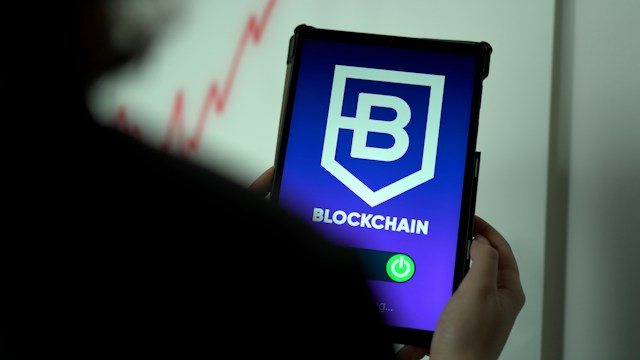Exploring the Role of Blockchain Technology in Modern Business

Imagine a technology so powerful that it has the potential to completely overhaul traditional industries, offering unprecedented transparency and security. This is not a futuristic vision; it’s already happening. Welcome to the world of blockchain technology, a revolutionary concept that is transforming sectors from finance to healthcare, logistics to entertainment, and beyond.
In this article, we will venture together on a journey that demystifies blockchain, showcasing how this revolution is taking place. We’ll highlight real-world examples from varied sector, demonstrating just how vital blockchain technology is already becoming—even if we may not realize it.
- You’ll discover why blockchain’s unique attributes make it such a powerful tool
- We’ll explore how various industries are exploiting these strengths
- You may even start to wonder how any business survived before blockchain technology came along.
No need for a background in computer science or cryptography! We will make this technological miracle digestible for all, peeling back the complexity to reveal the straightforward principles it’s built on. Fasten your seatbelts, readers, as we delve into the remarkable realm of blockchain technology.
Table of Contents
Blockchain Technology in the Financial Sector
Blockchain technology is an integral part of the financial sphere, precipitating a wave of innovative change. The disruption is rampant and palpable. Traditionally, financial transactions, whether involving stocks, bonds, or assets, were laborious, time-consuming operations beholden to intermediaries. Blockchain technology, hailed as the ‘new internet’, is changing this longstanding narrative.
Have you imagined what a world free from banking fees, credit fraud, identity theft, or access barriers would be like? Welcome to the empowering landscape of blockchain technology in finance. It puts you back in control of your money, assets, and personal information.
Consider cryptocurrencies, for example. They are entirely powered by blockchain technology. Here, the elimination of intermediaries streamlines transactions. The technology allows for borderless transfers of ownership, instant payments, and absolute transaction transparency. Bankers or notaries are no longer needed – why pay for intermediaries when the process can be trustless and automated.
Blockchain isn’t just about cryptocurrencies, though. The technology is setting the stage for “smart contracts”. These contracts house code that runs when certain conditions are met. They eradicate the need for enforcement, offering a faster, cheaper way to enforce obligations without an intermediary. Now, imagine applying this automated impartiality to insurance claims or property transfers. Intrigueted?
Finally, there’s the aspect of security. Blockchain technology is inherently resistant to fraud and tampering. The financial industry, constantly under threat, can use this resilience. Say goodbye to hacking fears or compromised transactions. Blockchain offers robust security, providing peace of mind along with financial efficiency.
The finance industry continues to unravel the potential of blockchain technology. As we move forward, expect to see more innovations, as this sector finds ways to utilize the power of blockchain. So keep an eye on this space!
Blockchain’s Impact in the Agriculture Industry
Let’s dive right into what might seem like an unlikely pairing: blockchain and agriculture. The agriculture industry, foundational as it is to human civilization, might not seem the most likely candidate for a high-tech makeover, and yet, this is precisely where blockchain is making a significant difference.
Chain-of-custody is a term you’re likely familiar with if you’ve been researching blockchain technology and its potential uses. This concept, in essence, is what blockchain brings to agriculture. With a secure and incorruptible data record, every individual seed can be tracked right from its inception in a seed laboratory, through its life as a crop in a field, and right up to your kitchen table. This level of transparency not only drastically reduces incidences of fraud and product misrepresentation but also ensures quality control and consumer trust.
Imagine this: you pick up a bag of organic apples at your local grocery store. On this bag, there’s a QR code which, when scanned, reveals a comprehensive journey of your apples right from the chop. This information isn’t just a novelty; it’s a powerful statement about food safety, ethical farming practices, and trade transparency.
Moreover, blockchain is helping to solve the agriculture industry’s age-old problem of waste. Improper storage, lagged shipping, or even a simple miscommunication can lead to massive amounts of food wastage. Through blockchain technology, each step in the process is recorded and verified, meaning that any inefficiencies are promptly recognized and rectified. The result is less waste, more efficiency, and a healthier bottom line for farmers.
In conclusion, the mixture of blockchain and agriculture may seem unusual on the surface – but the possibilities are vast when you dig a bit deeper. Through transparency, efficiency, and an unwavering commitment to quality, blockchain technology is helping to shape the future of agriculture as we know it.
The Role of Blockchain in Retail
Imagine you’re able to verify the origin and quality of your day-to-day purchases with just the scan of a code. Sounds incredible, doesn’t it? This is becoming a reality, thanks to the integration of blockchain within retail spheres.
Blockchain technology is famed for its decentralized nature and the ability to provide unmatched transparency to the current retail supply chains. It allows for a ledger that’s distributed, secure, and immutable.
Each product can be traced right back to its inception point, cutting through layers often shrouded in opacity. From the source of raw materials to the intricacies of the manufacturing process, nothing stays hidden. This ensures accountability at every step, a feature that discerning customers, concerned about ethical sourcing and environmental impacts, appreciate greatly.
Retail giants including Walmart and Alibaba are leveraging blockchain for enhancing supply chain visibility. They’re implementing systems which enable consumers to scan QR codes on products, obtaining a well-documented history and eliminating the possibility of counterfeit offerings slipping into the supply chain.
Furthermore, for retailers, there’s the added assurance of being legally compliant due to the comprehensive traceability provided by blockchain. It simplifies processes, reduces human error, and makes recall procedures less daunting. Analysts predict that continued adoption of blockchain could greatly streamline retail operations, positively impacting both consumer trust and bottom lines.
So next time you’re out shopping, bear in mind that the way you perceive each product’s story has been radically enhanced by the application of blockchain. A revolution in the retail sector, in the truest sense of the word.
Read also : Blockchain Technology Revolution: Beyond Bitcoin and Cryptocurrencies
Reference : https://www.investopedia.com/terms/b/blockchain.asp







